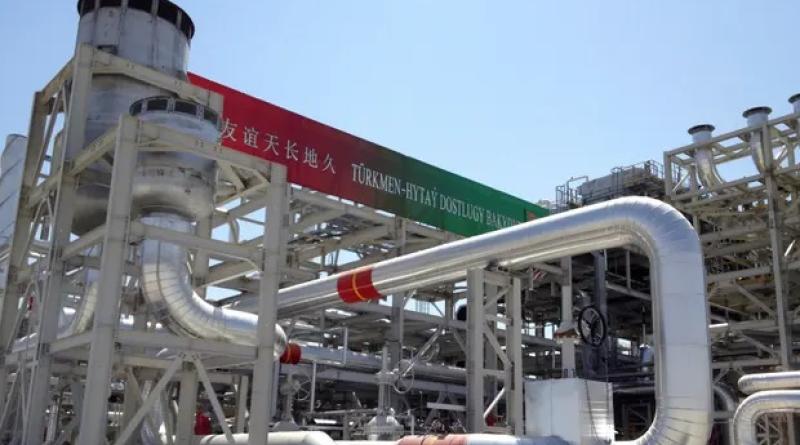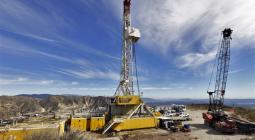Turkmenistan moves towards plugging massive methane leaks

The president of Turkmenistan has launched two initiatives aimed at cutting the colossal leaks of methane from the country’s oil and gas industry. Success would represent a major achievement in tackling the climate crisis.
A roadmap will pave the way towards the central Asian country joining 150 others that have already signed the Global Methane Pledge to cut global methane emissions by 30% by 2030. An inter-departmental government commission will also focus on reducing emissions of the powerful greenhouse gas.
Methane emissions cause 25% of global heating today. A surge since 2007 may be the biggest threat to keeping the global temperature rise below 1.5C and seriously risks triggering catastrophic climate tipping points, according to scientists. Tackling leaks from fossil fuel sites is the fastest, simplest and cheapest way to slash methane emissions.
Turkmenistan was responsible for the highest number of methane “super-emitter” events in the world in 2022, the Guardian revealed in March. The worst leak caused climate pollution equivalent to the rate of emissions from 67m cars. The US and Russia also had a large number of super-emitter events.
“It is very encouraging that a global effort is under way to assist Turkmenistan to mitigate its methane emissions, and that local authorities are responsive,” said Manfredi Caltagirone, head of the UN’s International Methane Emissions Observatory (Imeo).
“But after the announcements, the real work starts to actually cut emissions,” he said. “Operators in Turkmenistan need to perform measurements on each of their assets, report transparently and mitigate effectively.” Caltagirone said Imeo and the UN office in Turkmenistan were ready to step up their support.
President Serdar Berdimuhamedov approved the methane roadmap for 2023-2024 during a cabinet meeting on 10 June. Measures include improving national legislation, cooperation with foreign partners to set up pilot projects and collaboration with Imeo.
Berdimuhamedov stressed that Turkmenistan would continue to contribute in every possible way to regional and global environmental partnerships, according to reports. At the UN climate summit Cop26 in Glasgow in 2021, Berdimuhamedov said Turkmenistan was reducing greenhouse gas emissions “by introducing modern technologies in all spheres of the state’s economy”, with “special attention” to the reduction of methane emissions.
Satellite data analysis for the Guardian showed little change in Turkmenistan’s methane emissions from 2019-2022. Scientists whose recent research focused on 29 super-emitter events between 2017 and 2020 said the more frequent emitters were already in “conflict with Turkmen law”.
The decree authorising the interdepartmental commission on reducing methane emissions was signed by Berdimuhamedov on 2 June, a few days after he had spoken to John Kerry, the US special envoy for climate, about potential financial support and expertise.
In May, the Guardian revealed that methane leaks alone from Turkmenistan’s two main fossil fuel fields caused more global heating in 2022 than the entire carbon emissions of the UK. Emissions of the gas were “mind-boggling” and an “infuriating” problem that should be easy to fix, experts said.
Foreign investment may be crucial to ending the leaks. A recent comment article in Eurasia Review said the country’s government was “allergic to spending its own money on such undertakings”
The leaks are believed to come from ageing and poorly maintained oil and gas pipelines and from the venting to the atmosphere of unwanted methane gas that is produced alongside oil. However, gathering information on the ground in the repressive and authoritarian state is very difficult.
cover photo:A gas processing plant in eastern Turkmenistan. Photograph: Reuters Staff/Reuters






